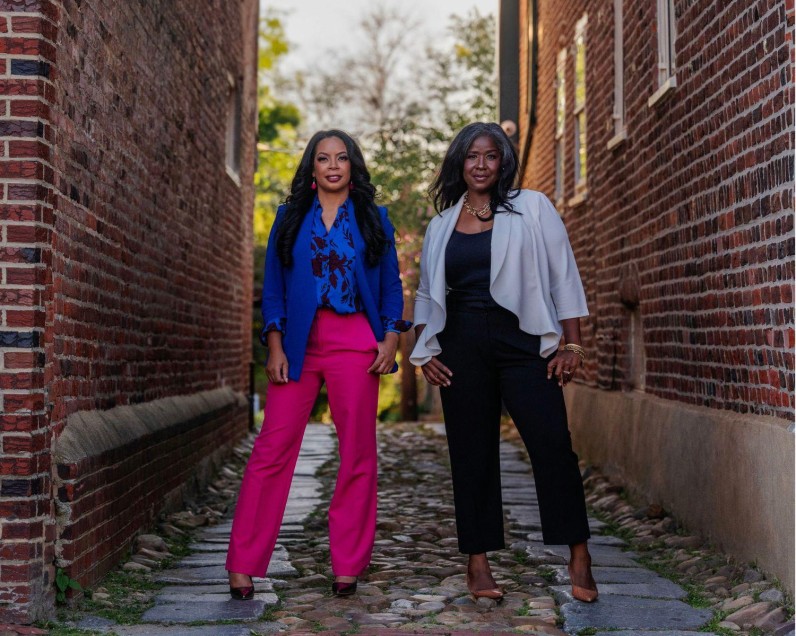
The door to financial prosperity and investment is one that has been closed for the majority of people, especially women and people of color, for over 150 years. Margins Capital and its founders, Stephanie A. Dorsey and Dr. Michele Dozier, intend to open that door.
The mission at Margins Capital is to democratize alternative investments, ensuring that those who have typically been left out of the world of private markets have the opportunity to learn and invest at their comfort level in an institutional-quality portfolio filled with world-class alternative investments. With this endeavor, they are opening the door to wealth-building and helping to close the persistent wealth gap.
A Surge in Alternative Investments and Investors
Alternative investments, including real estate, commodities, private equity, and even art, have gained significant interest globally, quadrupling in assets under management since 2010 and projected to reach an estimated $17 trillion by 2025. With such exponential growth, investing in Margins Capital offers a unique opportunity to diversify one's portfolio and take advantage of this historic surge.
The investment world is already working to expand alternative investments to individual investors. Dorsey elaborates, "In 2018, Blackstone shifted their investor makeup from primarily institutional investors to a mix of institutional and individual investors. The goal was to get from roughly 80-90% institutional [dollars] down to 50% institutional and 50% individual. Five years after declaring that objective, 25% of their AUM comes from individuals, and they recently hit the milestone of having one trillion dollars of assets under management. That is not a coincidence. They are executing their strategic vision for growth."
Dorsey adds, "It's just the next frontier, the next way that alternatives will continue to grow. The difference with our target investor is they were not included in the past and it appears that they are not being considered in this next phase. We're talking about trillions and trillions of dollars of wealth that will continue to be made for the same demographic."
Identifying the Problem
The problem that Dorsey and Dozier saw was that many potential investors, particularly those from underrepresented groups like themselves, often need to be made aware that these opportunities exist and are something they can and should participate in.
Dorsey elaborated on how she became aware of the problem. "A friend of mine who is an independently wealthy white man asked me if I knew any high net worth people that might want to invest in a venture capital fund. And I think it's imperative to note that even though I have a law degree and a MBA from Kellogg, at no point did I consider this an opportunity that I could be a part of. But, I did have a friend, my business partner and best friend of over 20 years, who fit the bill. I knew her financial situation and that she was in a position where she should consider diversifying her portfolio. As I helped her examine this opportunity; it became clear that, 'Hey, I really would like to have an opportunity to invest in this too!'"
Because of their relationship, Dorsey invested in the fund through Dozier; she wouldn't have been able to do it herself. Dorsey relayed the opportunity in a chat with professional black women making $175K- $550K; many were very interested. But, they immediately backed out when she shared that the minimum investment was $200,000.
According to Dorsey, four main obstacles are keeping her target audience out of investing in private markets. "They are the 'minimum investment amount is too high, SEC accreditation status, access to quality deals and education.' These women work in tech, so it bothered me that these women, who are successful by all other criteria, still cannot invest in something like this because of one or some combination of those barriers. That's what motivated us to solve this problem."
Quickly after, Dorsey gained awareness of a second problem, "If you start to think about the impact of the lack of access to private markets, the link between the lack of access and the wealth gap becomes apparent. Eighty-one percent of ultra high net worth individuals invest half of their wealth in alternative assets. There are many factors that contribute to the widening wealth gap, but one that no one is talking about is access to alternative investments. I'm very passionate about this." She recognized that Margins Capital could positively impact the wealth gap by helping those who are successful but still unable to write big checks get access to real step-change growth investment opportunities.
Educating and Empowering
Another vital service Margins Capital is looking to provide is information. The finance industry isn't very welcoming or transparent, so it's crucial for Dorsey and Dozier to expose women and people of color to the information they need to take charge of their wealth. They are taking to social media, crafting newsletters, and planning workshops to provide accessible, digestible, and actionable wealth knowledge that will inform, empower, and ultimately change these marginalized investors' lives.
"I want to normalize discussing money, sharing, and learning together so we can all win. And frankly, I feel like this is the only way. I don't know if there's another way for us to make a dent in this wealth gap."
Margins Capital's mission to truly make alternative investments accessible to underrepresented investors is a significant step towards reducing the wealth gap. Margins Capital is creating a more equitable financial landscape by providing education, fostering open conversations about wealth, and offering quality alternative investment opportunities.







Join the Conversation